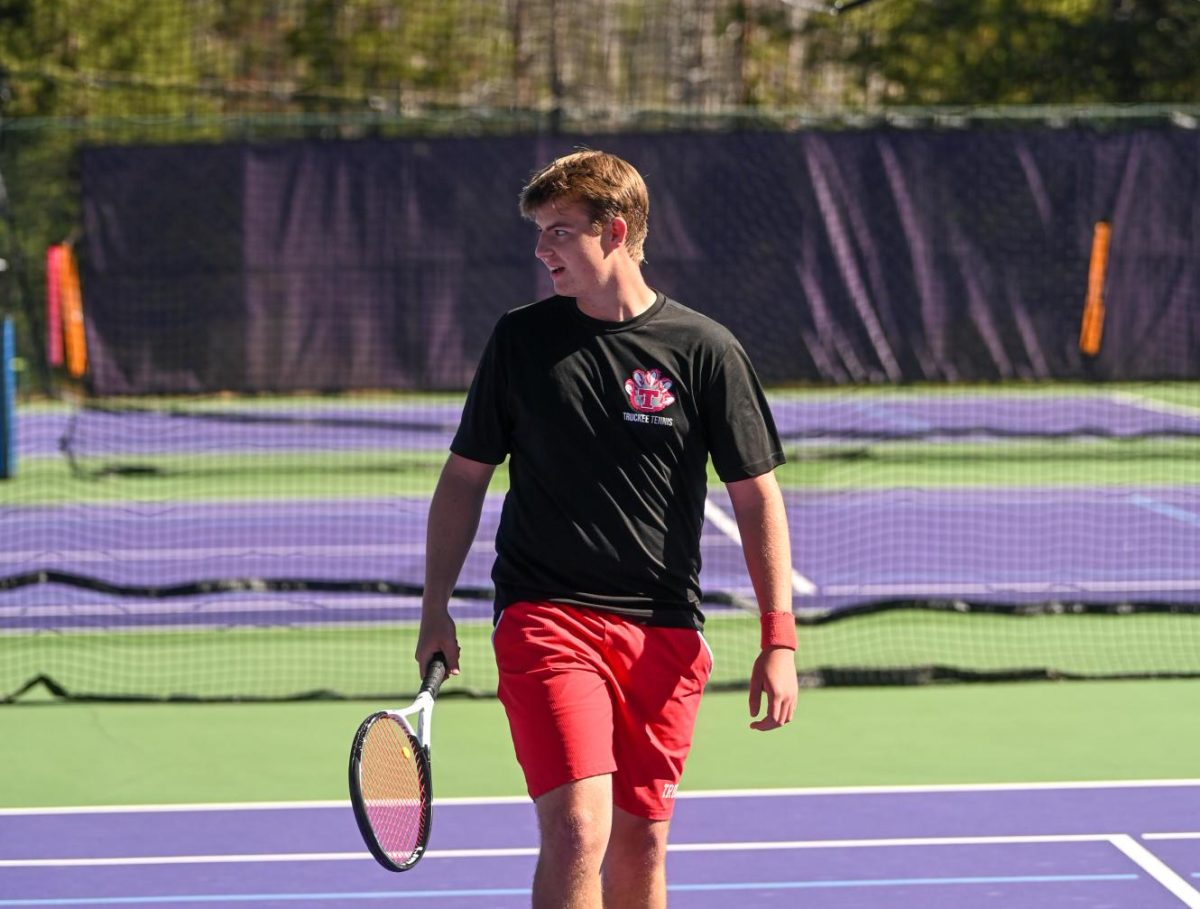Tennis, from its exterior, is a coldhearted, sweaty, pompous, and physical version of chess. Each move is deliberate, each action filled with quiet aggression, and underneath the sounds of strings and the scraping of shoes is a battle that isn’t visible to the naked eye: the fight for your own mentality. A quote that my mom says a lot and I resonate with immensely is, “The race is long and, in the end, it’s only with yourself,” from author Mary Schmich. As my last high school season comes to a close, those words have only improved in their clarity.
The court can easily become a theater for attention. My serves, returns, and drawn-out points are extensions of my own decisions, physical representations of the focus I am trying to tap into. A single thought, a replay of a bad call, a worry about the next point, or a flash of self-doubt can shift the entire geometry of the match. Good players learn to treat thoughts like stray balls after practice: things to be cleared so the real work can continue. Sometimes, the difference between the better and worse players is evident in what happens after the points stop.
Momentum in tennis is less of a statistic than a feeling. When you lose points, you surrender parts of yourself, the habit of breathing, of resetting between points, of believing the next one is the one you will win. Many of the most famous players have quirks that play into their psyche and anchor them in moments of chaos. These things can be as simple as the way you grab your towel or the way you bounce before a serve. Mental toughness isn’t some brash sense of grit but a more mundane collection of rituals that make confidence easier to visualize. In doubles, these things manifest through a private language, reminders to focus on the next ball. And one of the best things for me to witness was the differences in my different partners’ mannerisms over the years. Some would give a soft smile at a win, while others would quickly backflip. Some would marinade in their silence, taking their time, while others would slip into encouraging talks in between points. Trust matters more than talent in tight moments because one player’s wobble can offset both players’ balance unless it is quickly contained. It’s about adapting to change, and having fun with your friend, because it should be fun.
Strategy and coordination with your coaches does matter, but that can’t be achieved if attention isn’t won. At the end of the day, the scoreboard measures winners and losers, but the court measures something subtler: whose wit is ready to stand the test of time, heat, fatigue, and intimidation. Tennis rewards those who prepare physically, but those who have the discipline to manage their inner struggle. Win or lose, the match is decided as much by the voice in your head as the stroke of your racket. It’s up to you to tell yourself a story where mistakes are chapters, not endings. That’s what has made this sport so special to me.
I consider myself extremely lucky to be a frequent presence in Truckee’s lineup, and I am so happy that the team’s younger players have given the program momentum heading into next year. That momentum has also helped me and Nick Naylor qualify for first in the regional competition, and third in the state competition. I’m also extremely proud of our girl’s lineup, in which Riley Killen and Sophia Killian won the runner-up position. I wish good luck to the team’s future winnings, and I urge everyone to never forget the importance of the mental counterpart of this beautiful sport.
It’s all Mental: My farewell to High School Tennis
About the Contributor

Ciaran Phillips, Managing Editor
Ciaran is a Senior returning to the staff team for his fourth year of writing and designing. He will also be collaborating with Cali as one of the managing editors. He manages social media, photography, advertising, and the website. He enjoys writing on film, music, and current events. In his free time, he plays tennis, skis, and enjoys playing the double bass. He has broken both wrists.

